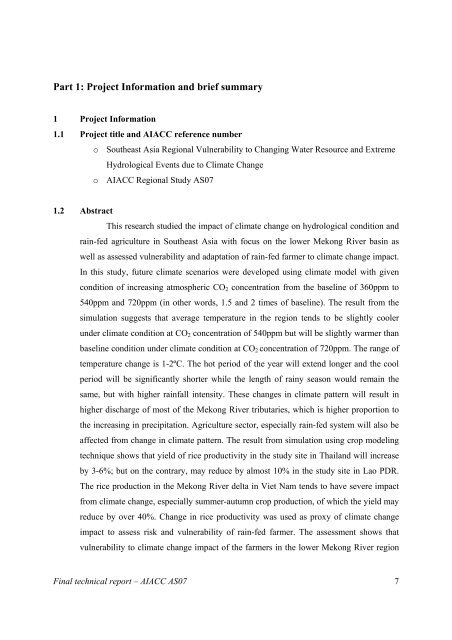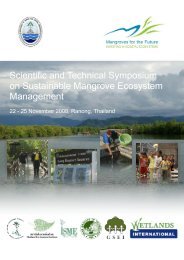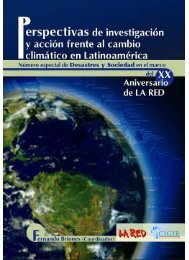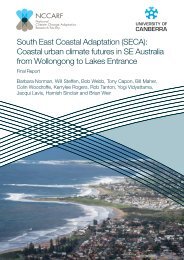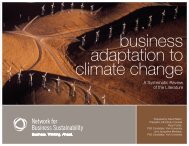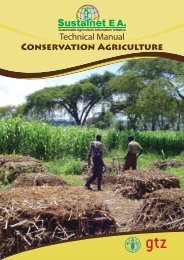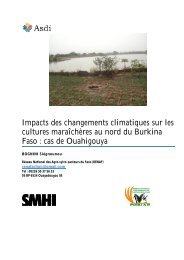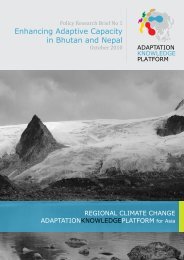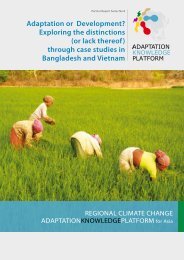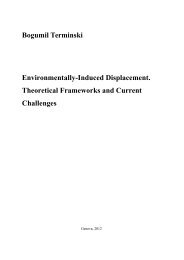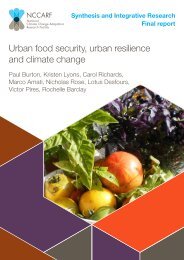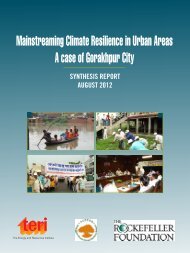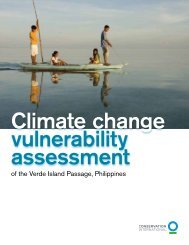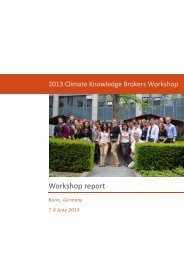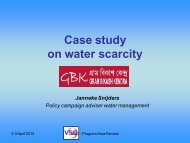Final Technical Report - weADAPT
Final Technical Report - weADAPT
Final Technical Report - weADAPT
- No tags were found...
Create successful ePaper yourself
Turn your PDF publications into a flip-book with our unique Google optimized e-Paper software.
Part 1: Project Information and brief summary<br />
1 Project Information<br />
1.1 Project title and AIACC reference number<br />
o Southeast Asia Regional Vulnerability to Changing Water Resource and Extreme<br />
Hydrological Events due to Climate Change<br />
o AIACC Regional Study AS07<br />
1.2 Abstract<br />
This research studied the impact of climate change on hydrological condition and<br />
rain-fed agriculture in Southeast Asia with focus on the lower Mekong River basin as<br />
well as assessed vulnerability and adaptation of rain-fed farmer to climate change impact.<br />
In this study, future climate scenarios were developed using climate model with given<br />
condition of increasing atmospheric CO 2 concentration from the baseline of 360ppm to<br />
540ppm and 720ppm (in other words, 1.5 and 2 times of baseline). The result from the<br />
simulation suggests that average temperature in the region tends to be slightly cooler<br />
under climate condition at CO 2 concentration of 540ppm but will be slightly warmer than<br />
baseline condition under climate condition at CO 2 concentration of 720ppm. The range of<br />
temperature change is 1-2ºC. The hot period of the year will extend longer and the cool<br />
period will be significantly shorter while the length of rainy season would remain the<br />
same, but with higher rainfall intensity. These changes in climate pattern will result in<br />
higher discharge of most of the Mekong River tributaries, which is higher proportion to<br />
the increasing in precipitation. Agriculture sector, especially rain-fed system will also be<br />
affected from change in climate pattern. The result from simulation using crop modeling<br />
technique shows that yield of rice productivity in the study site in Thailand will increase<br />
by 3-6%; but on the contrary, may reduce by almost 10% in the study site in Lao PDR.<br />
The rice production in the Mekong River delta in Viet Nam tends to have severe impact<br />
from climate change, especially summer-autumn crop production, of which the yield may<br />
reduce by over 40%. Change in rice productivity was used as proxy of climate change<br />
impact to assess risk and vulnerability of rain-fed farmer. The assessment shows that<br />
vulnerability to climate change impact of the farmers in the lower Mekong River region<br />
<strong>Final</strong> technical report – AIACC AS07 7


